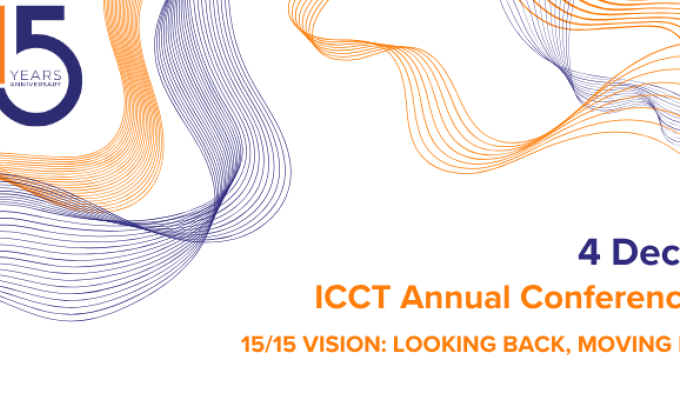While the World Health Organisation (WHO) is warning that a famine in Gaza is imminent with long-term health consequences, many governments (see below) have still suspended their financial support to the United Nations Relief and Work Agency for Palestine Refugees in the Near East (UNRWA). States took this decision after the allegations made by Israel on 26 January 2024 that 12 employees of UNRWA had been involved in horrific terrorist attacks by Hamas on the 7th of October 2023. Since then, more allegations have been made by Israel suggesting that 10 percent of the staff of UNRWA have ties to Hamas. Whether true or the outcome of a disinformation campaign remains to be seen. Hard proof has still to be delivered on these accusations.
UNRWA is the main organisation working in Gaza, established by the UN General Assembly Resolution 302 (IV) of 8 December 1949, with a total of more than 10,000 staff working in Gaza. Besides its own activities providing food, water, and shelter, it also works as a lynchpin – an intermediate for many other humanitarian aid organisations. Sigrid Kaag, senior UN Humanitarian and Reconstruction Coordinator for Gaza, stated “there is no way any organization can replace or substitute the tremendous capacity and the fabric of UNRWA and its ability and knowledge.”
After the allegations made on 24 January, 19 states (Australia, Austria, Canada, Estonia, Finland, France, Germany, Iceland, Italy, Japan, Latvia, Lithuania, Netherlands, New Zealand, Romania, UK, USA, Sweden, and Switzerland) and the EU announced the suspension of funding to UNRWA, freezing more than $900 million USD out of the budget of UNRWA. As of 22 March, several states (Australia, Canada, Sweden, and Finland) and the EU have unblocked the freeze and are resuming funding UNRWA, albeit sometimes with additional due diligence clauses installed (see below).
In this analysis, the allegations against UNRWA will be placed in the context of policies against the countering of the financing of terrorism (CFT). It will be argued that despite developments over the last years towards a more balanced and evidence-based approach to the implementation of CFT, particularly when it concerns implications for the not for profit sector (NPO sector) and humanitarian aid, the responses to the allegations against UNRWA underline the overall perceived trend towards a swing back to post 9/11 hard security policies at the cost of balanced and evidence-based responses to counter-terrorism and preventing and countering violent extremism.
Countering the financing of terrorism
Since 9/11, particularly measures against the financing of terrorism have been established. Whether through UN Security Council Resolution 1267 and follow-up resolutions, and UN Security Council Resolution 1373, the International Convention for the Suppression of the Financing of Terrorism, various EU measures, national policies, or the Financial Action Task Force Special Recommendations. Also, platforms such as the Global Counterterrorism Forum, and the Global Coalition against Daesh focus their activities on cutting off the finances of terrorist organisations. Without a doubt, the intention behind these policies is very important, and if done in a targeted manner, it can be very effective in cutting off the necessary financial supply of terrorist organisations. However, there have also been some serious concerns about the unintended negative consequences of these policies, and particularly the impact these have on the NPO sector, and the shrinking political space for civil society. Some of the policies and regulations related to countering the financing of terrorism focussed specifically on the potential role NPOs and charitable organisations could play in the financing of terrorism. The assumption was that particularly the NPO sector is at risk of being abused by terrorist organisations, and as a consequence, strong generic measures were taken to rule out that possibility. Legislation, such as the US Material Support Act, prohibited any financial or material support to ever find its way to terrorist organisations, criminalising any violation of that obligation. This placed a significant burden on NPOs and charitable organisations to prove extensively that their funding would not end in the hands of terrorists.
The transparency and due diligence obligations became such that donors became risk-averse, financial institutions and banks putting even higher thresholds, and NPOs experienced the risk of de-banking, severe delays in the service delivery, and increased administrative and financial burdens. Although felt throughout the whole NPO sector and well documented, particularly humanitarian organisations working in the direst circumstances and in areas sometimes under the control of terrorist organisations, trying to provide the basic human needs of food, shelter and medicine, were experiencing extreme difficulties, not always being able to prove 100 percent that their support would not fall in the hands of a violent extremist organisation. Fulfilling all requirements in terms of transparency and due diligence would sometimes implicate that humanitarian support to help a population survive dire winter circumstances, would not arrive at a location before the spring was already chasing away the cold. Some claim that these strict requirements, and the impossibility to comply, contributed to the famine in Somalia in 2011, since the designation of Al Shabaab as a terrorist organisation by the US in 2008, made it impossible for humanitarian organisations to operate in Somalia without the risk of being criminally prosecuted.
Since the early development of CFT policies, small adjustments have been made towards a more evidence-based risk assessment before targeting NPOs or humanitarian actors with prohibitions or heavy due diligence obligations. In December 2023, the FATF, for instance, updated its Special Recommendation no. 8, including a clearer application of the risk-based approach and acknowledgement of sectoral self-regulation measures. Although this change has been set in motion, some remain extremely critical, stating many challenges still remain.
In addition, the UN sanction regimes started to include humanitarian exemptions clauses. A humanitarian exemption clause allows for a legal derogation of the prohibition imposed by the UN sanctions regime to limit the scope of the measure by specifying that the sanctions do not apply to humanitarian actions. On 9 December 2022, the UN Security Council adopted Resolution 2664 providing a cross-cutting humanitarian exemption to asset freezes under all UN sanction regimes, including those related to the sanction regimes targeting ISIS and Al Qaida. The latter, however, are only temporarily exempted for a two-year period, and the renewal of this aspect of the scope of the resolution is up for renewal in December 2024 after review. With the adoption of this resolution, the UN took a major step towards better guarantees for the continuation of humanitarian aid also in the most difficult situations such as in Afghanistan under the rule of the Taliban, or in Somalia in areas under the control of listed terrorist organisations. It has even been attested that a 40 percent reduction in derisking by banks has been witnessed since.
These developments were also in line with the overall more balanced and comprehensive approach to counterterrorism, also including countering and preventing violent extremism policies, and more respect for human rights, and the prevention of unintended negative consequences. Moreover, aware of the fact that in situations of conflict and humanitarian disaster, every minute counts to save lives, some trust in organisations that are taking their due diligence obligations seriously should be in place, and no decisions to jeopardise the humanitarian aid should be taken in haste, without evidence, and disproportionally.
However, with the attack of 7 October, a swing back to the post 9/11 a ‘strike first, then ask questions’ hard security policy seems to be taking over, apparently also at the cost of balanced and comprehensive approaches based on evidence-based and proportional considerations when it comes to scrutinising funding for humanitarian aid. One of the main concerns after the adoption of Security Council Resolution 2664, is that the scope of the resolution does not apply to autonomous sanctions and restrictions, and this is clearly the manoeuvre room used by states that froze the financial support to UNRWA.
Reflecting on UNRWA’s due diligence in relation to CFT
Clearly, UNRWA like any other organisation providing humanitarian aid, also has to do its due diligence and abide by the legal obligations ensuring they are not financing terrorism. Firstly, it is important to ensure they respect the basic principles of humanitarian aid: independence, impartiality, neutrality, and humanity. Independence means that there is autonomy of humanitarian objectives from political, economic, military, or other objectives. UNRWA, therefore, has a stringent staff conduct framework in place to ensure that staff members do not affiliate themselves, and by extension, UNRWA, with any other groups. Furthermore, UNRWA vets all its partners in accordance with the UNRWA Vetting/Due Diligence Policy to ensure that it does not engage with any third party who appears on the Consolidated UN Sanctions List. Impartiality means that aid must be provided solely based on need, and without discrimination. UNRWA is therefore consistently affirming its impartiality and ensuring that its decisions are made on a “needs only” basis. UNRWA has also put stringent measures in place to ensure that the Agency’s buildings (or “installations”) are not affiliated with any particular group or otherwise used in a manner that would imply a lack of impartiality. In addition, the Agency’s staff conduct framework aims to ensure that our staff behave at all times in a manner consistent with our mission to protect life and health and ensure the respect of Palestine refugees.
Neutrality means that aid must not favour any side in an armed conflict or other dispute. In line with the neutrality principle, personnel vetting place a key role. It is interesting to notice that according to UNRWA’s website, the vetting of all personnel working for UNRWA in Gaza is not only done by UNRWA, but names and functions are always shared with Israel as well. This means that at all times, Israel is fully informed and aware of the details of all staff members working for UNRWA. Other UN Member States also receive these lists upon request. In addition, there is a robust disciplinary system in place to facilitate staff violation reporting. Finally, humanity means that human suffering must be addressed wherever it is found, with particular attention to the most vulnerable. In line with that principle, UNRWA promotes respect for international humanitarian law and advocates humane treatment of Palestinian refugees. These humanitarian principles are endorsed by UN General Assembly Resolutions 46/182 and 58/114, defining humanitarian aid as delivering life-saving assistance to those in need, without any adverse distinction.
In addition to the measures taken to preserve the humanitarian principles, specific measures are also taken by UNRWA to abide by CFTs. In that respect, UNRWA uses a direct implementation modality (no intermediaries), which means that the Agency has full control of the supply chain from receiving the goods at the crossing points of Gaza to bringing them to UNRWA warehouses and distribution points, where aid is delivered directly to registered beneficiaries, checked against a pre-established list, and according to needs. All movements of aid (including fuel) from the point of departure to the point of arrival inside Gaza are furthermore coordinated with and notified to the parties, including the Israeli authorities, to “deconflict”, or ensure the safe passage of the aid convoy’s movements and ensure safety of humanitarian workers. The convoys are also escorted and monitored by UN security personnel. In addition, UNRWA takes measures to ensure that it has no financial ties with any individual or organisation on the UN Security Council Consolidated Sanctions List. In times of escalation, there are also emergency screening procedures in place to ensure the provision of aid in an effective manner, such as rapid screening of new vendors.
The Norwegian Refugee Council published a Toolkit for Principled Humanitarian Action, that helps humanitarian organisations navigate their due diligence obligations, in particular managing counter-terrorism risks. Key aspects in this guidance are risk management, ensuring identification of risks, assessment of risks, monitoring and reporting taking place, having internal control mechanisms like vetting and spot checks, and independent assurance, audits and oversight.
UNRWA’s response
Perhaps inspired by the Toolkit, or because as a result of increased criticism against UNRWA, prior to the allegations of 26 January, on 17 January, the UNRWA Commissioner-General announced his intention to commission an independent review to identify and assess the adequacy and implementation of the Agency’s mechanisms and procedures to ensure neutrality. In direct response to the allegations, UNRWA immediately fired nine employees and launched an investigation to be conducted by the UN Office of Internal Oversight Services (OIOS). On 5 February, the UN Secretary-General appointed a Review Group, headed by Catherine Colonna, former French Minister of Foreign Affairs, to “assess whether the Agency is doing everything within its power to ensure neutrality and to respond to allegations of serious breaches when they are made”. The Review Group will identify and assess the mechanisms and procedures in place to ensure neutrality and to respond to allegations; ascertain how these mechanisms and procedures have, or have not, been implemented; to assess the adequacy of these mechanisms and procedures and whether they are fit for purpose; and to make a recommendation for improvement and strengthening, if necessary, of these mechanisms and procedures.
In resuming its payment to UNRWA, the EU moreover also demanded an additional audit to be conducted by the EU. Additionally, UNRWA agreed to the strengthening of its department of internal investigations and the governance surrounding it.
Concluding remarks
The final report of the Review Group is not expected before the end of April 2024. Meanwhile, Israel has not delivered substantial evidence to support any further allegations. Yet, UNRWA has taken substantive due diligence steps, and, in addition, taken actions in response to the allegations in order to preserve respect for the basic humanitarian principles and in order to be in line with CFTs. Given the severe consequences of suspension of funding, there are, therefore, strong arguments to say that the decisions regarding suspension were premature.
Whether a coincidence or not, on 26 January, the International Court of Justice ordered that “Israel must take immediate and effective measures to enable the provision of urgently needed basic services and humanitarian assistance to address the adverse conditions of life faced by Palestinians in the Gaza Strip”. These measures are aimed at preventing irreparable damage to the rights of Palestinians. Mindful also of the unanimously adopted UN Security Council Resolution 2417 in 2018, in which the Council condemned starvation as a method of warfare and prohibited by international humanitarian law, those States who decided without awaiting the results of the investigations into the allegations need to consider whether their swift decisions to freeze funds to UNRWA is not aggravating the situation in Gaza.
What is even more concerning is that these decisions are exemplary of the swing back to post-9/11 hard security policies. Furthermore, with the upcoming renewal of the humanitarian exemptions related to the 1267 Sanction regime in UN Security Council Resolution 2664, the humanitarian aid community fears that the 7 October events and the international community response to the allegations against UNRWRA are jeopardising the extension.
Over 20 years of counter-terrorism has taught us that the effectiveness of measures depends on comprehensive and balanced approaches. Principles such as proportionality and respect for human rights and international humanitarian law do matter to avoid unintended negative consequences of counterterrorism measures and even to prevent these measures from becoming a root cause for radicalisation itself. The lack of evidence supporting radical decisions without any concern for the short-, medium-, and long-term implications, and the complete neglect of the severe consequences of decisions to suspend funding of UNRWA, bring us right back to the CFT policies and their implementations in the period right after 9/11, with disastrous effects for NPOs and humanitarian aid.
This article represents the views of the author(s) solely. ICCT is an independent foundation, and takes no institutional positions on matters of policy unless clearly stated otherwise.
Photocredit: Mohammed Ibrahim/Unsplash.com








